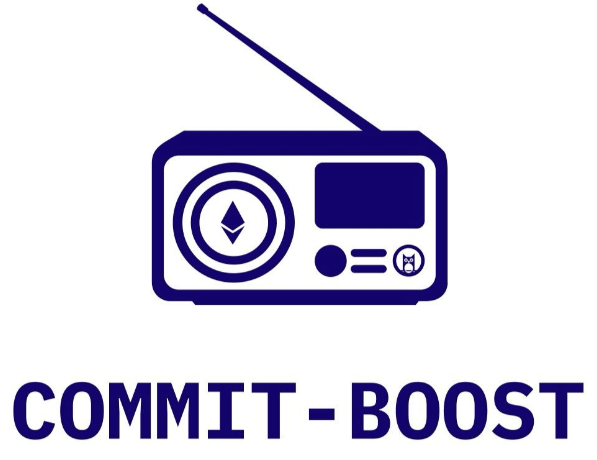
Commit-Boost
A standardized sidecar for Ethereum validators
Commit-Boost is a sidecar developed as an open-source public good that reduces risk for Ethereum and standardizes how proposers make commitments around blockspace. It's the only non-venture-backed sidecar with no monetization or token, developed by the Ethereum community for Ethereum.
Estimated Percentage Share of Sidecars Used by Validators
The data is based on self-reported information from staking entities and heuristics provided by various relays.
What is Commit-Boost?
Commit-Boost is an open-source public good developed in response to emerging risks facing Ethereum, its core development, and validator set. Built collaboratively by teams and individuals across the Ethereum ecosystem, Commit-Boost provides a lightweight validator-sidecar platform for making safe, standardized commitments.
Specifically, Commit-Boost aims to streamline the "last mile" of communication between validators and third-party protocols. Written from scratch in Rust, it's designed with safety and modularity in mind—ensuring it doesn't impose limits on downstream stakeholders, proposer flows, commitment types, or enforcement mechanisms.
What began as a small collaboration has grown into a community-driven initiative. Commit-Boost is a fully open-source, grant-funded effort built by Ethereum contributors—for Ethereum. No tokens. No monetization. Just software that supports the health and resilience of the Ethereum network.
Key Features
Unification During Forks
Core developers can rely on a single, standardized interface during Ethereum forks, upgrades, or in cases where things go wrong.
Backward Compatibility
Fully backward compatible with the current PBS Pipeline, while offering improved telemetry, reporting, and plug-and-play tools.
Single Sidecar, Multiple Commitments
Proposers can opt into additional commitments without needing to run multiple sidecars.
Robust Non-Profit Support
Maintained by a not-for-profit entity dedicated to testing, fork readiness, and validator support.
No VC Backing
Not venture-funded. No token, no monetization plan, and no intent to spin off commercial services.
Permissionless to Build On
Commit-Boost is designed for anyone to build on top of it, not limiting transaction flows or protocol development.
What Commit-Boost Is Not
It is not a protocol that defines or restricts constraint types.
It does not dictate who can create, aggregate, or pack constraints into blocks.
It does not enforce validator behavior—validators opt into constraints voluntarily.
It does not define consequences if a signed constraint is omitted from a block.
It simply standardizes how validators signal their intent to include a constraint.
Examples of What the Community Is Saying
Commit-Boost is being used and supported by all shapes and sizes of validators and by multiple types of teams building modules.
As a solo-staker I care about client diversity and a decorrelated software stack. CB represents a missing piece of the puzzle here, while also allowing me to tap into preconfirmations and other proposer commitment types in the future.
Solo Staker
Great performance, high integrity team. Having a single top-notch sidecar reduces the risk surface of preconfs a lot.
Node Operator
Thanks to the team for building credibly neutral, open-source Ethereum tooling. We fear a "sidecar-hell" is approaching Ethereum staking and CB is looking like a path to redemption.
Client Team
A big shoutout to the people working on Commit-Boost—having all these metrics at our fingertips is incredibly useful.
DVT Node Operator
We think Commit Boost is an essential piece of the puzzle to achieve L1 pre-confirmations and improve Ethereum by enabling new block production flows.
Node Operator
Unlike typical operating systems where there is little choice and vendor lock-in, Commit-Boost works like an app-store, where any developer and team can create Apps or 'modules' for Validators...
Module Developer
The importance of Commit-Boost cannot be overstated, especially as we stand on the brink of a proposer-commitment renaissance.
LRT, Preconf, Based rollup
Based rollups are emerging as Ethereum's most aligned scaling path — but to get there, we need shared infrastructure, common language, and open standards.
Based Rollup